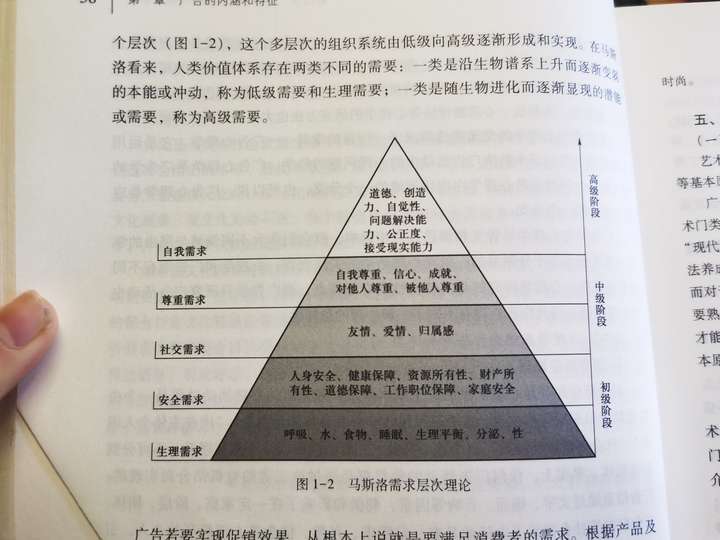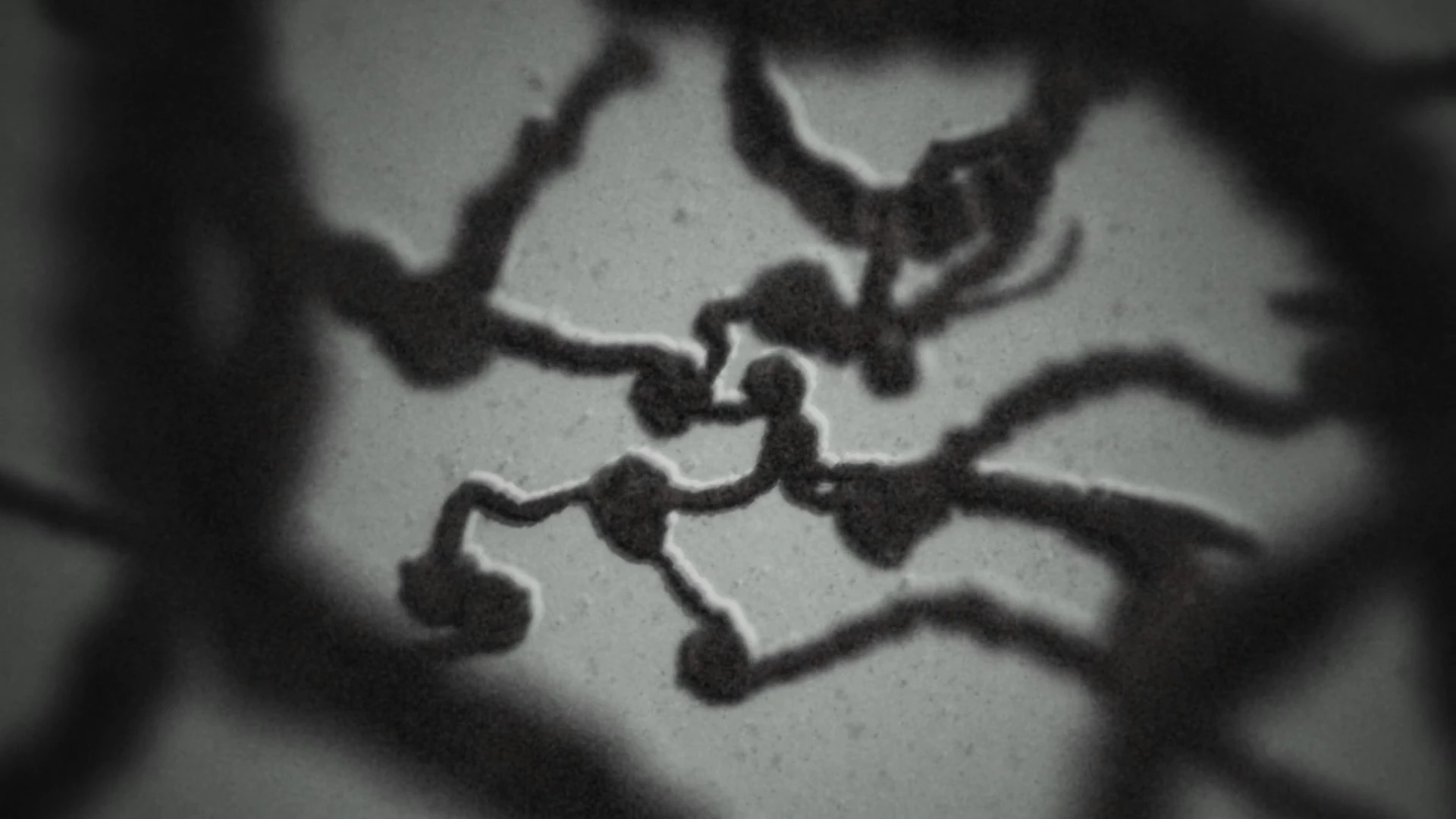“用户:Grotton JXz Donbrako/Psychology/Chapter 1”的版本间的差异
(补充完成(啊啊啊啊啊啊啊啊啊啊啊啊啊编辑完了居然没保存!!!吐了)) |
(小修改二处,链接和人名加粗) |
||
| (未显示同一用户的1个中间版本) | |||
| 第8行: | 第8行: | ||
---- | ---- | ||
*Psychology was once a part of philosophy. | *Psychology was once a part of philosophy. | ||
| − | *Philosophers such as Rene Descartes, John Locke, and Thomas Hobbes speculated on human nature. | + | *Philosophers such as '''Rene Descartes''', '''John Locke''', and '''Thomas Hobbes''' speculated on human nature. |
---- | ---- | ||
| − | *Rene Descartes believed that the physical world ''follows a set of observable laws or rules.'' | + | *'''Rene Descartes''' believed that the physical world ''follows a set of observable laws or rules.'' |
*He believed creatures are similar to machines, in that they are governed by laws and behave in predictable ways. | *He believed creatures are similar to machines, in that they are governed by laws and behave in predictable ways. | ||
| − | *Descartes believe that ''humans are the exception to this rule because they possess minds.'' | + | *'''Descartes''' believe that ''humans are the exception to this rule because they possess minds.'' |
*He makes a distinction between the body and the mind. | *He makes a distinction between the body and the mind. | ||
*''The mind is not observable and is not subject to the natural laws.'' | *''The mind is not observable and is not subject to the natural laws.'' | ||
*He thought the mind and body interact through the '''pineal gland'''. | *He thought the mind and body interact through the '''pineal gland'''. | ||
---- | ---- | ||
| − | *John Locke believed that ''even the mind is under the control of rules or laws.'' | + | *'''John Locke''' believed that ''even the mind is under the control of rules or laws.'' |
| − | * | + | *He believed that the world could be understood through '''empiricism''' – gathering knowledge and understanding the world through observation and experience. |
| − | * | + | *He thought that humans are born as a '''tabula rasa''', meaning a blank slate, and that ''everything we know has to be learned''. |
---- | ---- | ||
===History/Philosophy/Schools of Thought=== | ===History/Philosophy/Schools of Thought=== | ||
| 第152行: | 第152行: | ||
---- | ---- | ||
==原幻灯片(.ppsx)下载链接<br>{{Font|size=16px|(建议在下载后将后缀改成.ppt以方便观看与编辑)}}== | ==原幻灯片(.ppsx)下载链接<br>{{Font|size=16px|(建议在下载后将后缀改成.ppt以方便观看与编辑)}}== | ||
| − | + | <references>*<ref name="emanfer">[https://c73df654-060d-47ed-ba10-716d7ffb96b4.filesusr.com/ugd/cb70ba_e22bfe34142a4bdbbd3c7291338f2087.ppsx?dn=Chapter%201%20History%20%26%20Approaches.ppsx]</ref> | |
</references> | </references> | ||
2022年2月5日 (六) 11:00的最新版本
目录
页面介绍
本页面所转载文章出自APPsychPrep网站所分享幻灯片[1],由GJD转载。
转载时有改动,无任何原内容省略。
正文
What is psychology?
- Psychology is the study of the brain, mental processes, observable behavior, human and animal development, and social interactions.
- Psychology was once a part of philosophy.
- Philosophers such as Rene Descartes, John Locke, and Thomas Hobbes speculated on human nature.
- Rene Descartes believed that the physical world follows a set of observable laws or rules.
- He believed creatures are similar to machines, in that they are governed by laws and behave in predictable ways.
- Descartes believe that humans are the exception to this rule because they possess minds.
- He makes a distinction between the body and the mind.
- The mind is not observable and is not subject to the natural laws.
- He thought the mind and body interact through the pineal gland.
- John Locke believed that even the mind is under the control of rules or laws.
- He believed that the world could be understood through empiricism – gathering knowledge and understanding the world through observation and experience.
- He thought that humans are born as a tabula rasa, meaning a blank slate, and that everything we know has to be learned.
History/Philosophy/Schools of Thought
- One way to organize all of the ideas in psychology is by categorizing psychological theories and ideas into various schools of thought.
- Each school of thought has a certain way of describing some aspect of behavior, mental process, or social interaction.
- Structuralism
- Functionalism
- Psychoanalysis
- Behavioral
- Cognitive
- Humanistic
- Biological/Biomedical
- Sociocultural
- Biopsychosocial
Structuralism
- Wilhelm Wundt set up the first psychology lab in Leipzig, Germany.
- He championed the school of thought in psychology called Structuralism, “father of structuralism.”
- Structuralism is an attempt to breakdown the ‘elements’ of perception into smaller understandable units – similar to how a chemist breaks down a compound into its elements.
- The sensation of ‘red’ or ‘sharp’ or ‘hard’ is understood as an ‘element’ of consciousness.
- Trained subjects in introspection.
- Introspection is the examination or observation of one’s own mental and emotional processes.
- He asked trained subjects to record their cognitive reactions to simple stimuli.
- Describe this ______, and tell me your sensation of it.

- Structuralism is not an active area of study in psychology anymore.
Functionalism
- William James published The Principles of Psychology, psychology’s first official textbook.
- He championed the school of thought called Functionalism.
- Functional psychology or Functionalism refers to a psychological philosophy that considers mental life and behaviour in terms of active adaptation to the person's environment; it was influenced by Darwin and evolutionary theory.
- For example, an explanation for why a baby cries could be that crying as a behaviour is a successful adaptation; it helps the baby survive.
- Functionalism is not an active area of psychology anymore.
Gestalt Psychology
- Max Wertheimer argued against dividing human thought and behavior into discrete subjects; that is, he did not like structuralism.
- Gestalt theorists argue and demonstrate that “the whole is something else than the sum of its parts.”
- How many triangles are there?

- Gestalt psychology is not an active area of research anymore.
- Some of the ideas of Gestalt psychology have been adopted and reworked by cognitive psychology.
Psychoanalysis
- Sigmund Freud describes how the unconscious mind, dreams, and other psychological mechanisms exert influence on behavior.
- Psychoanalysis is a set of theories related to the study of the unconscious mind and a set of therapeutic techniques to help patients recover from psychological disorders.
- A psychoanalyst believes that the unconscious mind (a part of our mind we do not have access to) controls many of our thoughts and behavior.
- A psychoanalyst would look for impulses or memories pushed into our unconscious and try to show how these influence our behavior.
Behaviorism
- Ivan Pavlov studied digestion in dogs which led to an unintentional discovery.
- He noticed that dogs began to salivate when they heard him or his assistant walking down the hall before entering the room; dogs paired the sound footsteps with a delicious meal.
- "Classical Conditioning"

- John Watson:
- Demonstrated that you could take a neutral stimulus, like a rabbit, and condition someone, like a baby, to fear the rabbit by sounding an abrasive noise at the same time the rabbit was present. The baby associated the terrible noise with the site of the rabbit.
B. F. Skinner & Operant Conditioning:- He expands the basic ideas of behaviorism to include the idea of reinforcement and punishment.
Humanistic Perspective
- Key figures in the Humanistic perspective are Abraham Maslow & Carl Rogers.
- The humanistic perspective stresses individual choice and freewill.
- (in opposition to other schools of thought like psychoanalysis and behaviorism that claim that behavior is determined.)
- Humanistic psychologists assert that we choose most of our behaviors and these choices are guided by physiological, emotional, and spiritual needs.
- Maslow’s Hierarchy of Needs
- (5)(self-fullfillment)Self_Actualization
- achieving one's full potential(including creative activities)......
- (4)(psychological)Esteem Needs
- prestige/feeling of accomplishment......
- (3)(psychological)Belonging And Love Needs
- intimate relationships, friends......
- (2)(basic)Safety Needs
- security, safety......
- (1)(basic)Psychological Needs
- food, water, warmth, rest......
- (5)(self-fullfillment)Self_Actualization


Other Schools of Thought
- Biopsychology
- Biopsychologists explain behavior and human thought strictly in terms of biological processes: hormones; genetics; neurotransmitters; disease; brain lesions, etc.
- Evolutionary Psychology
- Evolutionary psychologists examine human thoughts and behaviors in terms of natural selection.
- Some psychological traits might be advantageous for survival, and these traits will be passed on.
- Evolutionary psychologists examine human thoughts and behaviors in terms of natural selection.
- Cognitive Perspective
- Cognitive psychologists examine behavior and thought in terms of how we interpret, process, and remember information.
- Jean Piaget's theory of cognitive development focuses on how our thinking develops as we develop from infants to adults.
- A cognitive psychologist might explain a person’s tendency to be extroverted in terms of how he or she interprets social situations.
- Sociocultural Psychology
- Sociocultural psychologists look at how our thoughts and behaviors vary from people living in other cultures. They emphasize the influence culture has on the way we act and think.
- How much value does the culture place on being part of a group versus being an individual?
- What kind of behaviors are appropriate in some countries but not in others?
- Sociocultural psychologists look at how our thoughts and behaviors vary from people living in other cultures. They emphasize the influence culture has on the way we act and think.
- Biopsychosocial Model
- The biopsychosocial model acknowledges that human thinking and behavior results from combinations of biological, psychological, and social factors.
- For example, anorexia may be explained as having biological, psychological, and cultural causes.
- The biopsychosocial model acknowledges that human thinking and behavior results from combinations of biological, psychological, and social factors.
Summary
| Approach | Cause of Behavior | Method for Investigation |
| Biological | Genes, hormones, physiology, brain, body | Brain scans, genetic analysis, investigating physiology/biology |
| Cognitive | Personal thoughts, thinking patterns, brain processes, neural networks | Investigating thoughts, patterns of thinking, and making analogies with computer models about the brain |
| Structuralism | Introspection studies | |
| Functionalism | Natural selection | Species comparison |
| Humanistic | Self-concept, self-esteem | Talk-therapy |
| Psychoanalytic/Dynamic | Unconscious mind, trauma | Dream analysis, talk-therapy |
| Behavioural | S/R responses, reinforcement/punishment | Understanding previous reinforcement/punishment history |
| Sociocultural | Differences in cultural background | Cross-cultural studies |
| Evolutionary | Natural selection | Genetic analysis, species comparisons |
| Gestalt Psychology | Sensory/Perception processing | |
| Biopsychosocial model | Aims to understand behavior through multiple schools of thought |